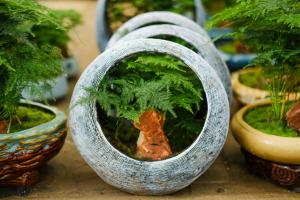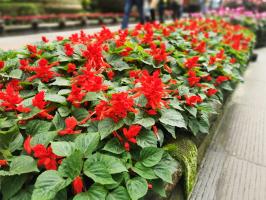Introduction
Feng shui is the ancient Chinese art of arranging the environment to create balance and harmony in life. It encompasses everything from the layout of a room to the placement of objects within it. One of the key elements of feng shui is the use of natural elements to promote positive energy flow, and for many, artificial plants can be a tempting alternative to caring for live plants. So, the question is: are artificial plants good feng shui?
The Pros of Artificial Plants in Feng Shui
Artificial plants have several advantages over live plants when it comes to incorporating them into feng shui practices:
Low Maintenance: Artificial plants do not require watering or care, making them a more convenient option for those with busy schedules or a lack of a green thumb.
Durability: Unlike living plants, artificial plants do not wither or die, meaning they can last indefinitely when properly cared for.
Flexibility: Artificial plants can be arranged and displayed in a variety of ways, making them a more versatile option for feng shui decorating.
Allergy-Friendly: For those with allergies or sensitivities to pollen or other plant allergens, artificial plants offer the aesthetic benefits of greenery without the adverse effects.
The Cons of Artificial Plants in Feng Shui
While artificial plants may seem like a convenient and attractive option, they do have some downsides when it comes to feng shui:
Lack of Life Energy: According to feng shui principles, living plants bring vibrant, life-giving energy to a space, which can enhance the flow of positive chi or energy. Artificial plants, on the other hand, lack this vital life force and may not have the same energy benefits.
Chemical Concerns: Some artificial plants are made from synthetic materials that can release harmful chemicals into the air. This can be detrimental to the quality of the indoor environment and may have adverse health effects.
Inauthenticity: Feng shui principles value authenticity, and artificial plants can be seen as symbolically "fake" or "imposter" versions of the real thing. This may not align with the harmony and balance that feng shui aims to cultivate.
The Middle Ground: Mixing Artificial and Live Plants in Feng Shui
While there are pros and cons to using artificial plants in feng shui, it's important to remember that there is no one-size-fits-all solution when it comes to creating a harmonious space. Many feng shui practitioners believe that a balance of both artificial and live plants can create a well-rounded, visually appealing environment with a combination of the benefits of both. Here are some ways to mix artificial and live plants in feng shui:
Use live plants in areas where fresh energy flow is important, such as near windows or entryways.
Use artificial plants in areas where live plants may not thrive, such as low-light or high-traffic areas
Combine artificial and live plants in arrangements, such as using an artificial tree as a centerpiece with live plants placed around it.
Conclusion
When it comes to using artificial plants in feng shui practices, there are pros and cons to consider. While artificial plants may lack the life energy of live plants, they offer convenience and flexibility that can be useful in many feng shui decorating situations. Ultimately, the best approach may be to mix artificial and live plants in a way that creates balance, beauty, and positive energy flow.

 how many times do yo...
how many times do yo... how many planted tre...
how many planted tre... how many pine trees ...
how many pine trees ... how many pecan trees...
how many pecan trees... how many plants comp...
how many plants comp... how many plants can ...
how many plants can ... how many plants and ...
how many plants and ... how many pepper plan...
how many pepper plan...




























